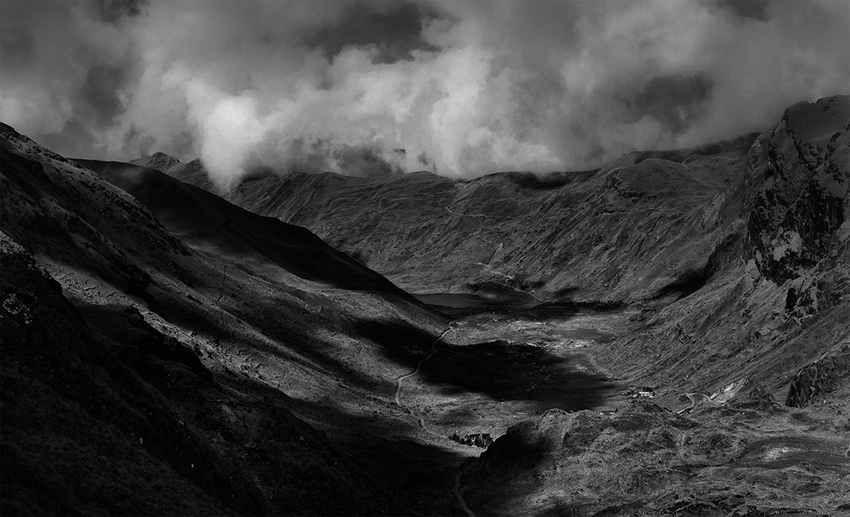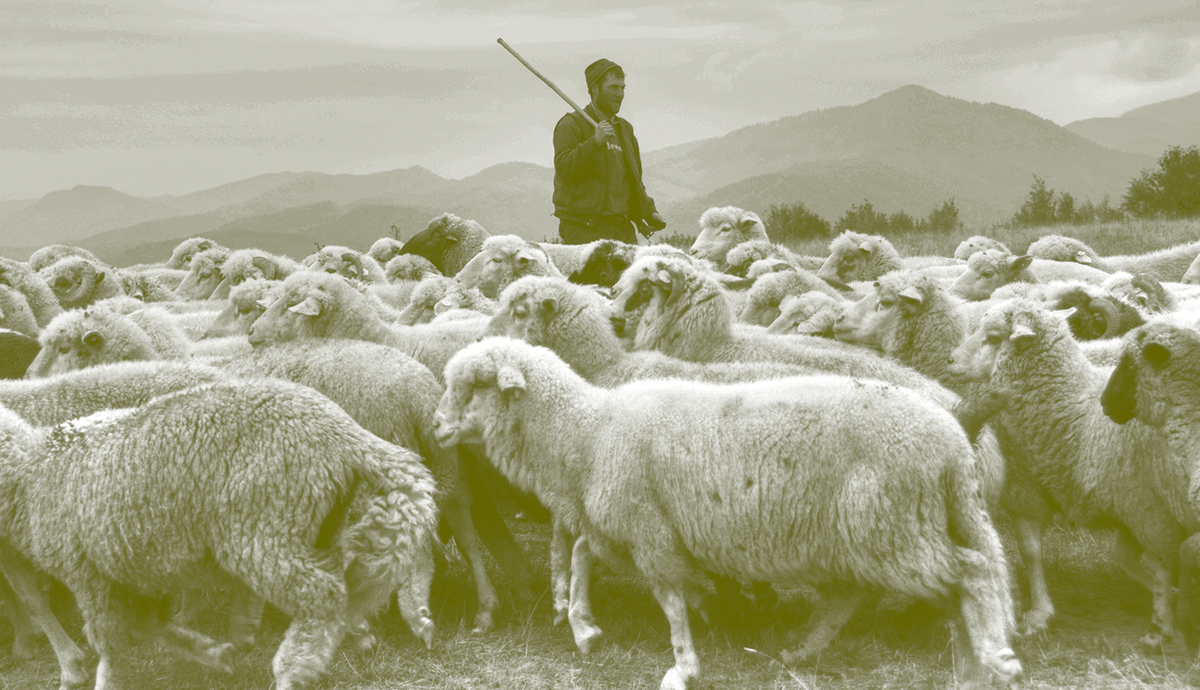Walking the Darkest Valley
Psalm 23
Fourth Sunday in Lent
Analysis by Peter Keyel
1 The Lord is my shepherd, I shall not want.
2 He makes me lie down in green pastures;
he leads me beside still waters;
3 he restores my soul.
He leads me in right paths
for his name’s sake.
4 Even though I walk through the darkest valley,
I fear no evil;
for you are with me;
your rod and your staff—
they comfort me.
5 You prepare a table before me
in the presence of my enemies;
you anoint my head with oil;
my cup overflows.
6 Surely goodness and mercy shall follow me
all the days of my life,
and I shall dwell in the house of the Lord
my whole life long.
Author’s Note: In this Psalm, the diagnosis is extremely vague: “shadow of the valley of death” (even less helpful is the NRSV’s “darkest valley”) and “presence of enemies,” along with the knowledge of David’s screw-ups, are the only information we have to go on. At the same time, this psalm is arguably the most-read and most-beloved psalm in the Bible. In Crossings-lingo, that means people are naturally adept at tracking this text. For specific tracking, one approach is to simply ask people, “Under what circumstances have you recited this psalm, or read it in the Bible for comfort and grace?” The third aspect of the Crossings method (the crossing) comes when you ask the twin questions, “Why did you turn to this psalm?” and “How did hearing the comfort and grace promised in it make you feel?”
DIAGNOSIS: Fearing Evil
Step 1: Initial Diagnosis (External Problem): Wickedness Abounds
Life isn’t easy. We generally have to toil to provide for ourselves and our own. Worse, there are plenty of others who would quickly take it from us. Whether it is a rival interfering with our advancement in employment or in our social circle, a thief who may steal from or hurt us, or the threat of bodily harm, there is plenty of wickedness in the world.
Step 2: Advanced Diagnosis (Internal Problem): Fearing Evil
We may not be able to control life (much as we might want to!), but we do have control over ourselves. …And we use our control to fear evil. After all, forewarned is forearmed: if we don’t fear evil, we may underestimate it, and underestimating the Enemy always ends poorly.
Step 3: Final Diagnosis (Eternal Problem): Lost Soul
We lose sight of the fact that the more we fear the Enemy, the less we trust God to be our Shepherd. Lacking that trust means we may not just lose our lives, but our souls as well.
PROGNOSIS: Fear No Evil
Step 4: Initial Prognosis (Eternal Solution): Restores My Soul
 God comes down to earth in Jesus to find all of us lost souls, so that we may trust God to be our Shepherd. Jesus restores our souls and leads us in right paths for God’s sake. The sign we are given is Jesus’ death and resurrection. He has already walked through the darkest valley. Death is a place where God has already been ahead of us. But still Jesus chooses to be with us in our dark valley. God is with us and guides us with rod and staff to give us comfort.
God comes down to earth in Jesus to find all of us lost souls, so that we may trust God to be our Shepherd. Jesus restores our souls and leads us in right paths for God’s sake. The sign we are given is Jesus’ death and resurrection. He has already walked through the darkest valley. Death is a place where God has already been ahead of us. But still Jesus chooses to be with us in our dark valley. God is with us and guides us with rod and staff to give us comfort.
Step 5: Advanced Prognosis (Internal Solution): I Fear No Evil
God’s comfort, not our own control, creates the faith in us that drives out our fear of evil. Because he sets a table before us in the presence of that enemy, we can trust that–even though we ourselves experience the valley of the shadow of death, we need not fear evil. In faith, we can eat in the presence of enemies. Evil may still be lurking, but—because Christ is our defense—it is no longer something to be feared.
Step 6: Final Prognosis (External Solution): Goodness and Mercy Shall Follow Me
Something quite remarkable follows when we cease to fear evil. Our cup overflows. Goodness and mercy follow us. Faith changes our focus from fear of loss to enjoying the abundance present in our lives. When we focus on this abundance it becomes contagious; we are free to share it with others. And, in sharing, we bring Christ’s comfort to others.




You must be logged in to post a comment.